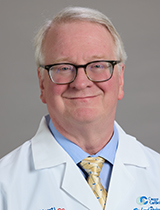Tips to proactively care for your heart

Here are a few steps to follow that could help you or a loved one prevent a heart attack.
Did you know that more than 80 percent of all heart attacks or other cardiovascular incidents are preventable through lifestyle changes? That’s according to the American Heart Association.
Yet many of us fall short in making the changes necessary to control our risk factors for the disease that’s responsible for nearly one out of three deaths in the U.S.
“I encourage patients to make it a priority to always be mindful of their heart health,” said Richard Padgett, MD, FACC, executive medical director of the Oregon Heart and Vascular Institute and system medical director for cardiovascular services at PeaceHealth.
Taking your heart health seriously is easier than you might think.
Here are just a few steps you can take:
1. Understand your risk. This is the most important first step to preventing heart disease. You may be at a higher risk of heart disease based on your family history. Or, if you have pre-existing conditions like diabetes, or if you are overweight or use tobacco. Take this heart health assessment to get your personal risk score. With the results of your assessment, you can consult your doctor about how to manage your risk with lifestyle habits.
2. Embrace lifestyle changes. To increase your chances of living the long, healthy life you deserve:
- Eat foods that are healthy for your heart.
- Get regular exercise.
- Maintain a healthy body weight.
- Avoid tobacco.
- Limit the consumption of alcohol.
3. Take daily aspirin ONLY as directed by your doctor. The chance of bleeding due to aspirin’s blood-thinning effect may be too high to make this habit worth your while. And be sure to talk with your doctor before regularly taking any other prescription or over-the-counter medications.
4. Routinely follow up with your physician to manage and treat known cardiovascular risk factors such as:
- Hypertension (high blood pressure)
- Diabetes
- Abnormal lipids/cholesterol
“Proactively caring for your heart now can ensure that you don’t miss a beat on life’s greatest moments later,” said Dr. Padgett.
If you want to better understand your risk, or you’re ready to take the next step in your heart care journey, schedule an appointment with your primary care physician to begin this important conversation. They can help you set goals to change your lifestyle, assess your risk, and refer you to a cardiologist, if needed.
Source: ACC and AHA 2019 Primary Prevention of Cardiovascular Disease guideline for heart disease and stroke prevention






